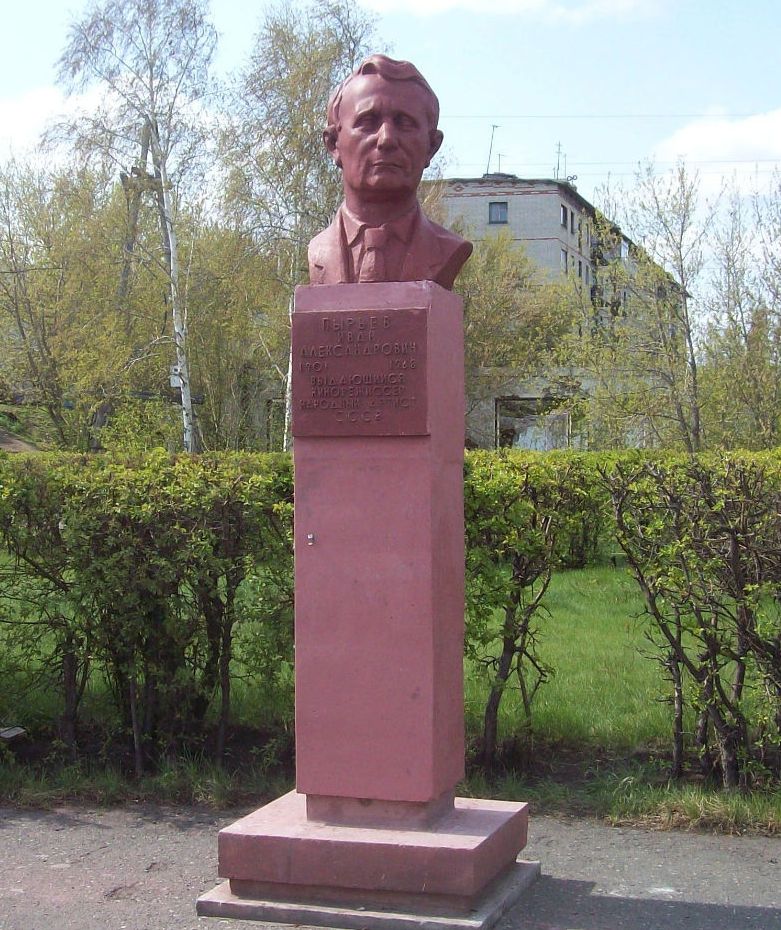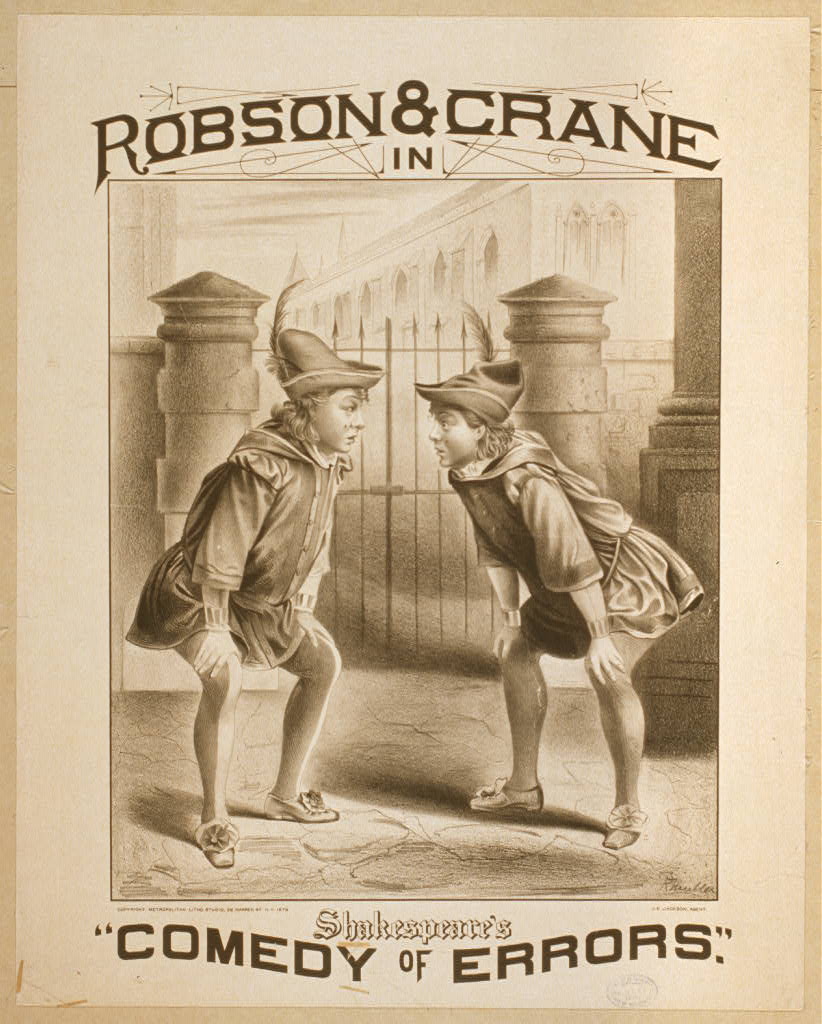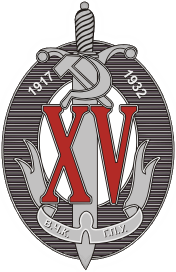|
Vladimir Zeldin
Vladimir Mikhailovich Zeldin (russian: Владимир Михайлович Зельдин; 10 February 1915 – 31 October 2016) was a Soviet and Russian stage and film actor. A centenarian, he was among the longest-serving stage performers and continued acting up until his death. Early life Zeldin was born in the town of Kozlov (now Michurinsk, Tambov Oblast of Russia), the youngest of five children. With the start of the Russian Civil War the family moved to their relatives in Tver. His mother Anna Nikolayevna Zeldina (née Popova, 1884–1931) was a native Russian teacher turned a housewife. His father Mikhail Yevgenyevich Zeldin (1876—1928) was a musician of Jewish origin who converted to Russian Orthodoxy in order to enter the Moscow Conservatory; he served as a kapellmeister in the Imperial Russian Army concert band and as the head of the Kozlov and Tver music schools after the October Revolution. Vladimir himself was raised in the Russian Orthodox traditions and assoc ... [...More Info...] [...Related Items...] OR: [Wikipedia] [Google] [Baidu] |
Michurinsk
Michurinsk (russian: Мичу́ринск) is the second most populous town in Tambov Oblast, Russia. Population: History Originally known as Kozlov (), it was founded in 1635 at the northern end of the emerging Belgorod Line, a frontier defense line. A earthen wall was built eastward across the open steppe effectively blocking the Nogai Trail, a Tatar raiding route. The success of this line led to the building of further lines further south. The settlement was granted town status in 1779. The town was renamed Michurinsk in 1932 after the biologist Ivan Michurin, who had developed a genetic laboratory and agricultural testing fields in the Tambov region, dedicated to pomology (the study of fruit growing) and selection. Administrative and municipal status Within the framework of administrative divisions, Michurinsk serves as the administrative center of Michurinsky District, even though it is not a part of it.Law #72-Z As an administrative division, it is incorporated ... [...More Info...] [...Related Items...] OR: [Wikipedia] [Google] [Baidu] |
Moscow Conservatory
The Moscow Conservatory, also officially Moscow State Tchaikovsky Conservatory (russian: Московская государственная консерватория им. П. И. Чайковского, link=no) is a musical educational institution located in Moscow, Russia. It grants undergraduate and graduate degrees in musical performance and musical research. The conservatory offers various degrees including Bachelor of Music Performance, Master of Music and PhD in research. History It was co-founded in 1866 as the Moscow Imperial Conservatory by Nikolai Rubinstein and Prince Nikolai Troubetzkoy. It is the second oldest conservatory in Russia after the Saint Petersburg Conservatory. Pyotr Ilyich Tchaikovsky was appointed professor of theory and harmony at its opening. Since 1940, the conservatory has borne his name. Choral faculty Prior to the October Revolution, the choral faculty of the conservatory was second to the Moscow Synodal School and Moscow Synodal Choir, ... [...More Info...] [...Related Items...] OR: [Wikipedia] [Google] [Baidu] |
Ballad Of Siberia
''The Ballad of Siberia'' (in ), also known as ''Symphony of Life'', produced by Mosfilm and released in 1948, was the Soviet Union's second color film (after ''The Stone Flower''). It was directed by Ivan Pyryev and starred Vladimir Druzhnikov and Marina Ladynina. It is a Soviet style musical movie, full of songs, such as "The Wanderer", describing the development of Siberia after World War II. Synopsis Pianist Andrei Balashov (Vladimir Druzhnikov) after being wounded at the front during the Great Patriotic War loses the opportunity to earnestly pursue music due to a hand injury. Without saying goodbye to his friends and his beloved Natasha ( Marina Ladynina), he goes to Siberia. He works on the construction of a plant, and in the evenings sings in a teahouse. By chance, weather conditions force the plane with Andrey's friends, Boris Olenich (Vladimir Zeldin) and Natasha, who are flying to a competition abroad, to land at the airport near the building of the plant. Andrey meet ... [...More Info...] [...Related Items...] OR: [Wikipedia] [Google] [Baidu] |
Ivan Pyryev
Ivan Aleksandrovich Pyryev (russian: Ива́н Алекса́ндрович Пы́рьев; – 7 February 1968) was a Soviet-Russian film director and screenwriter remembered as the high priest of Stalinist cinema. He was awarded six Stalin Prizes (1941, 1942, 1946, 1946, 1948, 1951), served as Director of the Mosfilm studios (1954–57)Ирина Гращенкова''Пырьев Иван Александрович,'' Кинобраз. Accessed 18 July 2008. and was, for a time, the most influential man in the Soviet motion picture industry. Life and career Pyryev was born in Kamen-na-Obi, in the Tomsk Governorate of the Russian Empire (now Altai Krai, Russia). His early career included acting on stage directed by Vsevolod Meyerhold in ''The Forest'' («Лес») and by Sergei Eisenstein in the Proletcult Theatre production ''The Mexican''. Pyryev also acted in Eisenstein's first short film ''Glumov's Diary.'' Pyryev's early career included production jobs behind t ... [...More Info...] [...Related Items...] OR: [Wikipedia] [Google] [Baidu] |
They Met In Moscow
They Met in Moscow (russian: Свинарка и пастух, Svinarka i pastukh, en, Swine-herd and Stableman) is a 1941 Soviet musical- comedy film directed by Ivan Pyryev. Plot Swineherd Glasha and stableman Kuzma from a farm in what is now the Vologda Oblast of Russia are sent to an agricultural exhibition in Moscow. Kuzma is popular among the girls there, and makes passes at Glasha, but is not too bright, and thinks only of Moscow shops. Glasha, at the behest of her grandmother, carefully studies the know-how of other swine-breeders. By chance she meets at the exhibition a Dagestan shepherd Musaib from an aul, and they end up falling in love with each other. They agree to meet at the Union Agricultural Exhibition again in a year. As Glasha returns to the farm she seeks to build a new pigsty, she takes care of the swine and invents a feeder for piglets. Kuzma just keeps strolling through the village with an accordion and being a nuisance to Glasha. Musaib with his dog ... [...More Info...] [...Related Items...] OR: [Wikipedia] [Google] [Baidu] |
Intrigue And Love
''Intrigue and Love'', sometimes ''Love and Intrigue'', ''Love and Politics'' or ''Luise Miller'' (german: Kabale und Liebe, ; literally "'' Cabal and Love''") is a five-act play written by the German dramatist Friedrich Schiller. His third play, it was first performed on 13 April 1784 at Schauspiel Frankfurt. The play shows how cabals and their intrigue destroy the love between Ferdinand von Walter, a nobleman's son, and Luise Miller, daughter of a middle-class musician. Characters * President von Walter, at a German prince's court * Ferdinand, the president's son, an army major * Hofmarschall von Kalb * Lady (Emilie) Milford, favourite of the prince * Wurm, the president's private secretary * Miller, town musician or "Kunstpfeifer" * Miller's wife * Luise, Miller's daughter * Sophie, maid to Lady Milford * A valet to the prince * Various minor characters Plot Ferdinand is an army major and son of President von Walter, a high-ranking noble in a German duke's court, while Lui ... [...More Info...] [...Related Items...] OR: [Wikipedia] [Google] [Baidu] |
The Comedy Of Errors
''The Comedy of Errors'' is one of William Shakespeare's early plays. It is his shortest and one of his most farcical comedies, with a major part of the humour coming from slapstick and mistaken identity, in addition to puns and word play. It has been adapted for opera, stage, screen and musical theatre numerous times worldwide. In the centuries following its premiere, the play's title has entered the popular English lexicon as an idiom for "an event or series of events made ridiculous by the number of errors that were made throughout". Set in the Greek city of Ephesus, ''The Comedy of Errors'' tells the story of two sets of identical twins who were accidentally separated at birth. Antipholus of Syracuse and his servant, Dromio of Syracuse, arrive in Ephesus, which turns out to be the home of their twin brothers, Antipholus of Ephesus and his servant, Dromio of Ephesus. When the Syracusans encounter the friends and families of their twins, a series of wild mishaps based o ... [...More Info...] [...Related Items...] OR: [Wikipedia] [Google] [Baidu] |
Gogol Center
The Gogol Center, formerly Gogol Theatre, is a multi-use arts complex in Moscow that was home to Russia's leading avant-garde theater. In June 2022 it was closed down by the Russian Government, along with an announcement that it would be renamed Nikolai Gogol Drama Theatre. Starting life as a theatre company called Drama and Comedy Theatre in 1925, the theatre has undergone a succession of renamings, including Moscow Theatre of Transport and Central Theatre of Transport, as the company originally served railway workers. It was first named after writer Nikolai Gogol on the 150th anniversary of the his birth, in 1935. The building is located at 8A Kazakova Street, Moscow. Early history The Drama and Comedy Theatre, a theatre company, was founded in 1925 with the intention of serving railway workers, and managed by K. Golovanov. In 1930, it was passed to government control, under an administrative unit for Literature and Art Affairs (Glaviskusstvo) at the RSFSR Ministry of Educa ... [...More Info...] [...Related Items...] OR: [Wikipedia] [Google] [Baidu] |
Mossovet Theatre
Mossovet State Academic Theatre (Государственный академический театр имени Театр Моссовета) is one of the oldest theatres of Moscow, opened in 1923 and based at Bolshaya Sadovaya, 16. History Mossovet Theater was created in 1923 by the theatre entrepreneur S.I.Prokofiev, first as the Theater of Moscow Provincial Council of Trade Unions (MGSPS). In 1925–1940 it was led by E.O. Lyubimov-Lanskoy and in 1938 changed its name to the Theatre of Moscow City Council (Teatr Moscovskovo soveta) later to be shortened to its present form. The theatre progressed greatly during the reign of actor and director Yury Zavadsky (the protégé of Konstantin Stanislavski) which started in 1940 and lasted up to 1977. In those years the Mossovet became home to such Soviet stage stars as Vera Maretskaya, Nikolai Mordvinov, Faina Ranevskaya, Lyubov Orlova, Rostislav Plyatt, Boris Ivanov, Georgiy Zhzhonov, Gennady Bortnikov, Mikhail Kozakov, Yury ... [...More Info...] [...Related Items...] OR: [Wikipedia] [Google] [Baidu] |
Joint State Political Directorate
The Joint State Political Directorate (OGPU; russian: Объединённое государственное политическое управление) was the intelligence and state security service and secret police of the Soviet Union from 1923 to 1934. The OGPU was formed from the State Political Directorate of the Russian Soviet Federative Socialist Republic one year after the founding of the Soviet Union and responsible to the Council of People's Commissars. The agency operated inside and outside the Soviet Union, persecuting political criminals and opponents of the Bolsheviks such as White émigrés, Soviet dissidents, and anti-communists. The OGPU was based in the Lubyanka Building in Moscow and headed by Felix Dzerzhinsky until his death in 1926 and then Vyacheslav Menzhinsky until it was reincorporated as the Main Directorate of State Security (GUGB) of the NKVD in 1934. History Founding Following the formation of the Soviet Union in December 1922, the ... [...More Info...] [...Related Items...] OR: [Wikipedia] [Google] [Baidu] |
Moscow State Academy Of Choreography
The Moscow State Academy of Choreography (russian: Московская государственная академия хореографии), commonly known as The Bolshoi Ballet Academy, is one of the oldest and most prestigious schools of ballet in the world, located in Moscow, Russia. It is the affiliate school of the Bolshoi Ballet. The Bolshoi Ballet receives the majority of its dancers from the academy, as do most other Moscow ballet companies. Numerous choreographers, instructors and graduates of the academy have become renowned, including Olga Lepeshinskaya, Raisa Struchkova, Natalia Bessmertnova, Ekaterina Maximova, Maya Plisetskaya, Nikolai Fadeyechev, Vladimir Vasiliev, Mikhail Lavrovsky, Nikolay Tsiskaridze, to be bestowed a People's Artist of the USSR, "prima ballerina assoluta" and "premier dancer", the ultimate title for a ballet performer of the Soviet Union. The academy was awarded the Japanese Foreign Minister’s Commendation for their contributions to pro ... [...More Info...] [...Related Items...] OR: [Wikipedia] [Google] [Baidu] |
Dmitry Gordon
Dmitry Ilyich Gordon ( uk, Дмитро Ілліч Гордон, Dmytro Illich Hordon, russian: Дмитрий Ильич Гордон; born October 21, 1967) is a Ukrainian journalist, interviewer, politician and singer. He is also the editor-in-chief of the newspaper "Boulevard" (from June 1995), later – "Gordon Boulevard". In June 2019, Gordon became the head of the election headquarters of the party Strength and Honor. Biography Dmitry was born on the 21-st of October 1967 in Kyiv to a Jewish family. His father, Ilya Gordon, was a civil engineer and his mother, Mina Gordon, was an engineer-economist. Gordon started school at the age of six and finished it at 15.Пишет и показывает Дмитрий Гордон. During his school years, he r ... [...More Info...] [...Related Items...] OR: [Wikipedia] [Google] [Baidu] |


.jpg)


